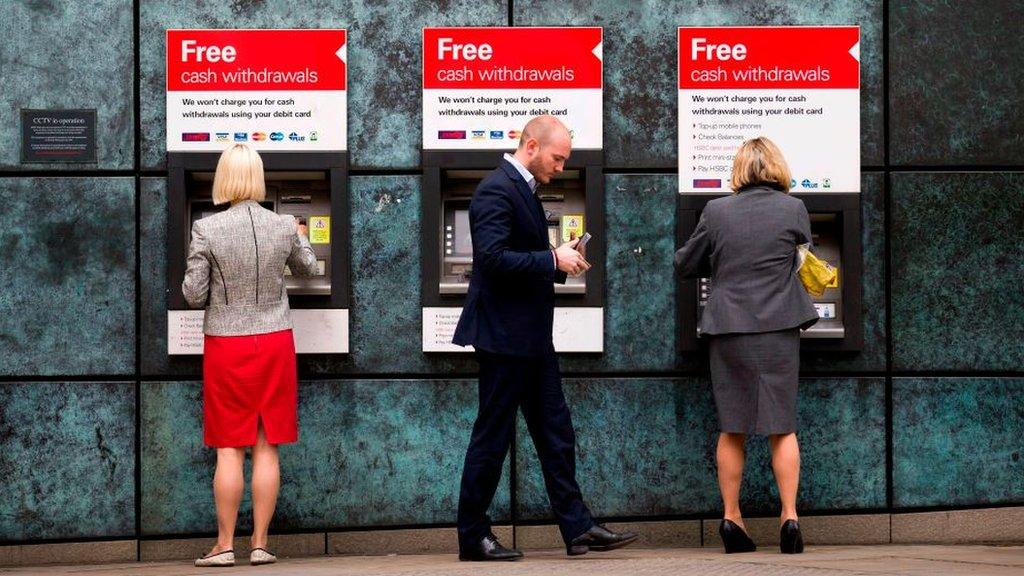Election 2019, Your Questions Answered: Which party will help first-time buyers?
- Published

With the general election only a fortnight away, housing is a topic that has been on the minds of our readers.
Here, we answer a selection of your questions.
What are parties pledging to do to help first-time buyers? Joanna MacGowan, Southampton
Young people in particular are less likely to own a home than previous generations, according to the think tank the Resolution Foundation.
The Conservatives want to introduce a new mortgage with long-term fixed rates, requiring only a 5% deposit, to help young people buy their first homes.
This is in addition to creating a scheme where first-time buyers will be able to get a 30% discount on new homes in their local area.
Labour has also said it would give local people "first dibs" on new homes built in their area.
It has also promised to review Help to Buy. This is a government scheme which lets buyers access a loan of up to 20% of the purchase price, or 15% in Scotland, or 40% in London. The loan is interest-free for the first five years, and it only applies to new-builds.
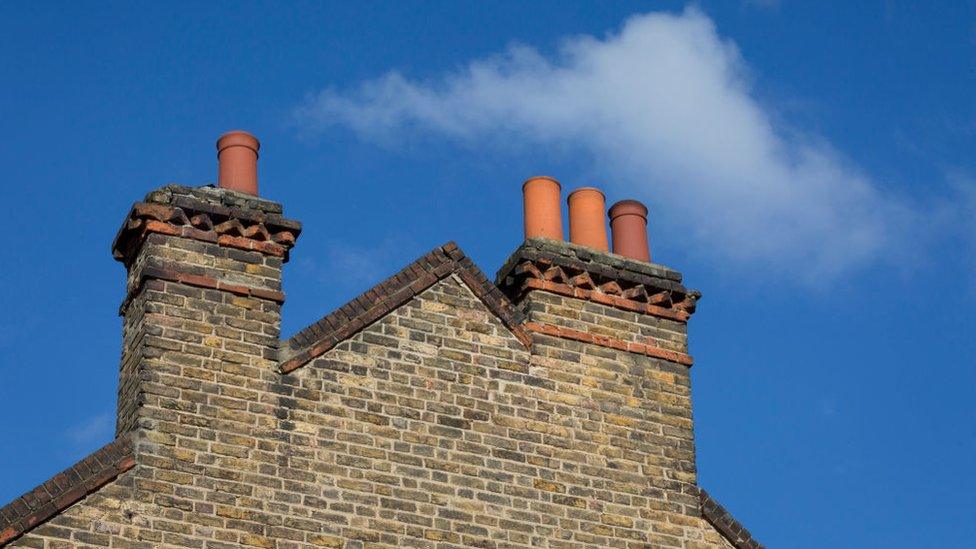
What's being done to solve the housing crisis for millennials in major cities? Adam, Birmingham
Young people aged 25 to 34 make up the largest proportion of renters in the UK, according to the Office for National Statistics., external
In addition to making pledges on home ownership, some parties say they will overhaul private renting.
The Conservatives have promised to introduce a scheme where renters can transfer deposits from one rental property to another.
Labour, on the other hand, announced that it would cap rent prices with inflation, as well as introduce open-ended tenancies. It also wants to bring in an annual "property MOT", to ensure flats and houses meet minimum standards.
The Liberal Democrats say they would set up a new Help to Rent scheme, where first-time renters under 30 could apply for loans for deposits on their first properties.
Several parties including Labour and the Green Party have also said they want to end no-fault evictions, also known as "Section 21 evictions", where landlords can evict tenants without a reason after their fixed-term tenancy has ended.
The government has previously proposed to scrap these notices.
It is widely acknowledged that the UK is facing its biggest-ever housing shortfall. What plans do parties have to boost housebuilding? Gareth Johns, Oxford
Several experts have said that the UK faces a shortfall in housing.
The number of new houses being built has fallen in recent years, and stood at 164,390 in 2018., external
Labour has promised to build 100,000 new council houses a year in England, and at least 50,000 affordable homes through housing associations.
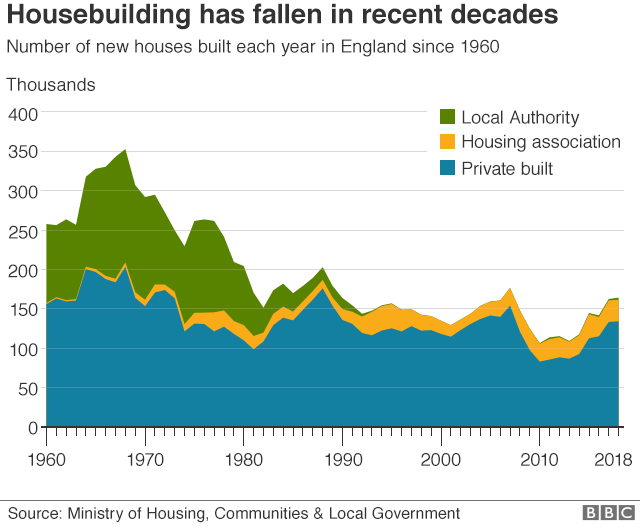
The Conservatives want to boost private housebuilding. They've pledged a million homes over five years, and an overhaul of the planning system.
The Lib Dems want to build 300,000 homes a year by 2024, and the Greens want an extra 100,000 council homes a year.
The construction sector has said, external for a number of years that it faces a shortage of skills, so there are challenges to ramping up construction.

CONFUSED? Our simple election guide, external
POLICY GUIDE: Who should I vote for?, external

What are the proposals from each party on stamp duty? Linda Williams, Cumbria
Stamp duty is a tax that people who buy property or land over a certain price must pay., external In England and Northern Ireland buyers pay Stamp Duty Land Tax, in Scotland it is Land and Buildings Transaction Tax. In Wales, buyers pay Land Transaction Tax.
The Conservatives have announced that if they're elected, foreigners buying property in the UK will be forced to pay 3% more in stamp duty than UK residents.
The Lib Dems have also promised a surcharge on overseas buyers, but have not specified the amount.
The Green Party plans to scrap stamp duty, along with other property taxes including council tax and business rates, and replace them with a new Land Value Tax.
Plaid Cymru, the SNP and Labour make no reference to stamp duty, or their equivalents, in their manifestos, although Labour proposes a levy on overseas companies buying housing.
What are the details of Labour's second home tax, and re. ownership of a property shared by multiple individuals as their second homes? Edmund, London
Labour wants to introduce a new annual levy on second homes , externalused as holiday homes in England "to help deal with the homelessness crisis, so that those who have done well from the housing market pay a bit more to help those with no home".
The annual levy would be equivalent to 200% of the current council tax bill for the property. Labour estimates that this could currently raise up to £560m a year.
The council tax database indicates that as of October 2018 there are just over 250,000 properties classed as second homes for council tax purposes in England.
However, the £560m is calculated as revenue from second homes that are specifically only used as holiday homes, and not for other purposes such as employment.
In this time of climate emergency why aren't the government insisting all new housing developments are built with solar panels? Joan Abbatt, Wrexham
It sounds like an obvious solution but governments have often been wary of insisting on anything that would add to the costs of building new homes.
A key priority - until now at least - has been affordability, and the price tag for even the simplest solar panel installation will be several thousand pounds.
But as the costs of all types of renewable energy continue to fall, and if home buyers start demanding a greener option, it may well be that developers fit solar panels with or without government intervention.
More Your Questions Answered:
- Published15 November 2019
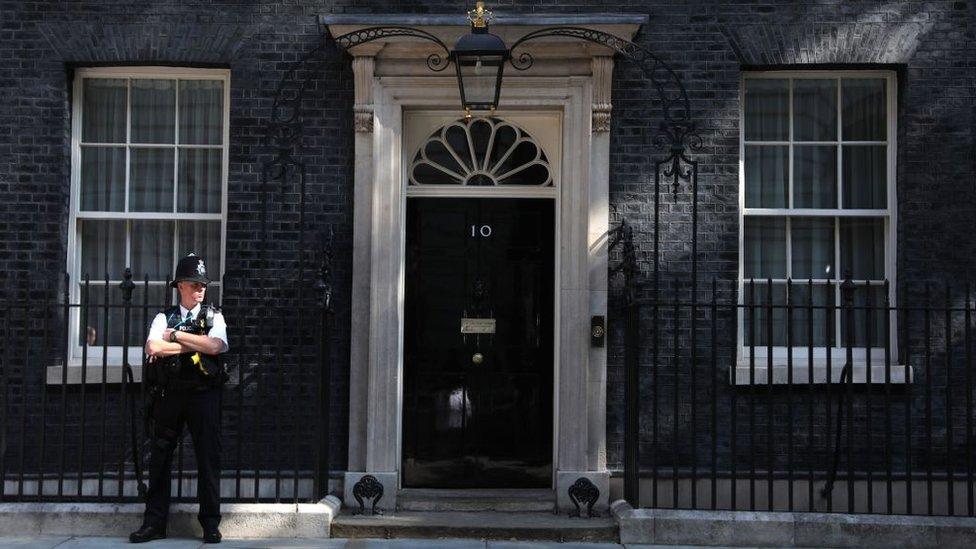
- Published6 December 2019
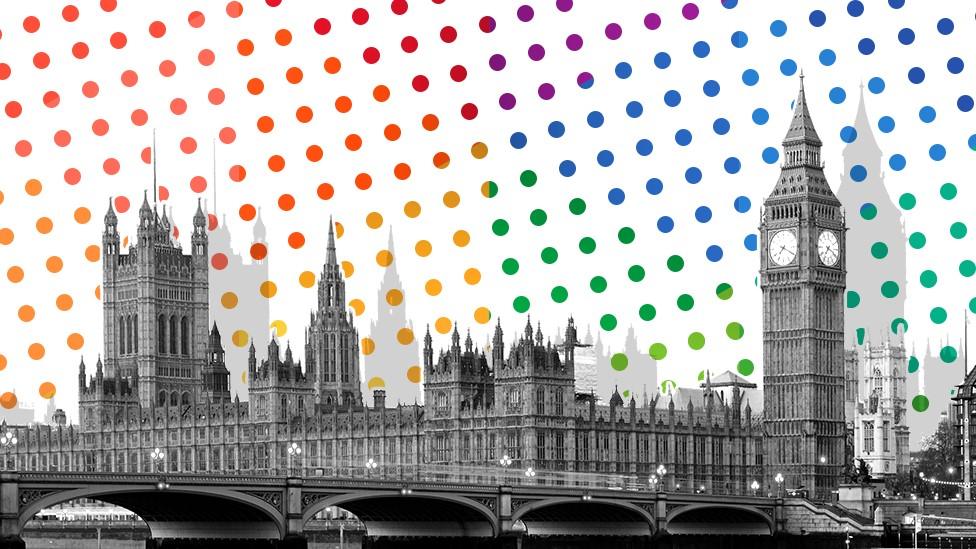
- Published19 November 2019
